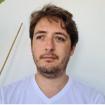
The Scientific Revolution: Shaping the Foundations of the Modern World
The Scientific Revolution of the 16th and 17th centuries marked a transformative period in human history, characterized by profound conceptual shifts and unprecedented scientific progress. It began with seminal works like Copernicus' "De revolutionibus orbium coelestium" in 1543 and culminated in Newton's "Philosophiæ Naturalis Principia Mathematica" in 1687. While these milestones heralded monumental advancements, the era's impact was not universally felt, with many Europeans continuing their agrarian existence amidst societal stagnation.
Central to this revolution was the challenge to entrenched religious doctrine and the emergence of empirical observation as the cornerstone of scientific inquiry. Prior to this, scientific explanations were intertwined with religious narratives, but the Scientific Revolution ushered in a new era of testable hypotheses and reproducible experiments.
Astronomy played a pivotal role, as visionaries like Copernicus and Galileo revolutionized cosmological understanding. Concurrently, figures like Descartes and Boyle laid the groundwork for modern analytical geometry and chemistry, respectively.
Newton's laws of motion and universal gravitation crowned this era of discovery, providing a framework for understanding celestial mechanics and optics. While subsequent developments refined these theories, the enduring legacy of the Scientific Revolution lies in its methodological rigor and commitment to empirical inquiry.
Though marked by systemic inequities, the democratization of knowledge sparked by this era paved the way for centuries of progress, shaping the modern world in profound ways.
Top image: Astronomer Copernicus, or Conversations with God, by Matejko. Source: Public Domain















